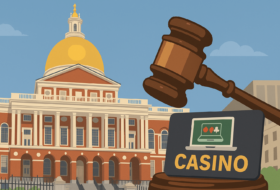
Amusement devices of various forms provide a valuable source of tax revenue for Pennsylvania municipalities, but the growing popularity of gray market skill gaming machines is complicating the issue. The problem is that there are too many of them, in too many places.
The typical approach is for officials to visit the types of locations that traditionally host amusement devices to count the machines. These include bars, restaurants, and video arcades. They then issue an annual tax bill to the owner based on the number of devices. However, skill games have made this difficult because they’re so lucrative that they’ve cropped up in many locations that wouldn’t ordinarily host other types of amusement devices. They can now be found in grocery stores, gas stations, smoke shops, and even some waiting rooms.
New machines are now appearing faster than officials can track them. That means municipalities are missing out on potential tax revenue.
Johnstown to Change How It Tallies Amusement Devices
When properly accounted for, skill game terminals generate substantial revenue for municipalities. According to The Meadville Tribune, the city of Johnstown’s tax schedule charges $350 for money-dispensing devices like the skill games, $100 for most other types of games and jukeboxes, and $75 for pool tables. The city collected over $55,000 in the most recent tax period from 87 businesses hosting devices.
However, the number of establishments with skill games is likely to be much higher than that. During a Johnston City Council meeting in April, Deputy Mayor Michael Capriotti acknowledged this, saying:
There’s a ton more revenue out there that we aren’t even looking at.
As a result, the city is changing its approach to getting an accurate tally. In the past, officials kept a list of known locations to visit. While performing those visits, they discovered additional locations to add to the list.
To reduce the investment of time and effort, officials plan to send letters to all small businesses on file, requesting that they report any amusement devices on the premises. After receiving responses, city officials will conduct physical inspections only for companies that failed to respond. The city says it believes that most small business owners are honest and that it wants to avoid harassing them unnecessarily.
Skill Games Proliferate as Policymakers Remain Deadlocked
Skill game machines resemble slots, but manufacturers like Pace-O-Matic argue that they aren’t “gambling” because they include an element of skill. Legal definitions of the term hinge on the phrase “games of chance,” so incorporating skill-based mechanics allows the machines to operate outside the laws governing regulated gambling.
The rapid spread of skill game terminals in cities like Johnstown is possible because the machines fall into this gray area in the state’s laws. Attempts to close the loophole—or formally embrace it—have failed.
In December, the state’s Appellate Court ruled that Pace-O-Matic machines are not gambling devices. The Pennsylvania Supreme Court likewise refused to hear an appeal from state authorities defending their seizure of the machines. For now, they continue to operate.
However, while the Pennsylvania courts have sided with skill game manufacturers and operators in these instances, lawmakers are wrestling with the question of how to deal with them.
That’s easier said than done. Gov. Josh Shapiro wants to regulate them, and there is some support for this in the legislature. He included skill games in his 2024-2025 state budget with the intent of taxing their revenue at 42%. That sounds high, but it’s less than the 54% the state applies to video gaming terminals and casino slots.
On the other hand, Attorney General Michelle Henry supports a ban on skill machines and has the support of lawmakers like Sen. Amanda Cappelletti and Rep. Mark Rozzi. Naturally, the state’s retail casinos are also pushing for a ban on their unlicensed competition. Some of them have blamed skill game machines for a slowdown in business resulting in the need to remove some slots from their gaming floors.
Both sides are entrenched, and the situation looks like it will take time to resolve. In the meantime, the number of machines across the state continues to rise, with the logistical headaches increasing along with it.





